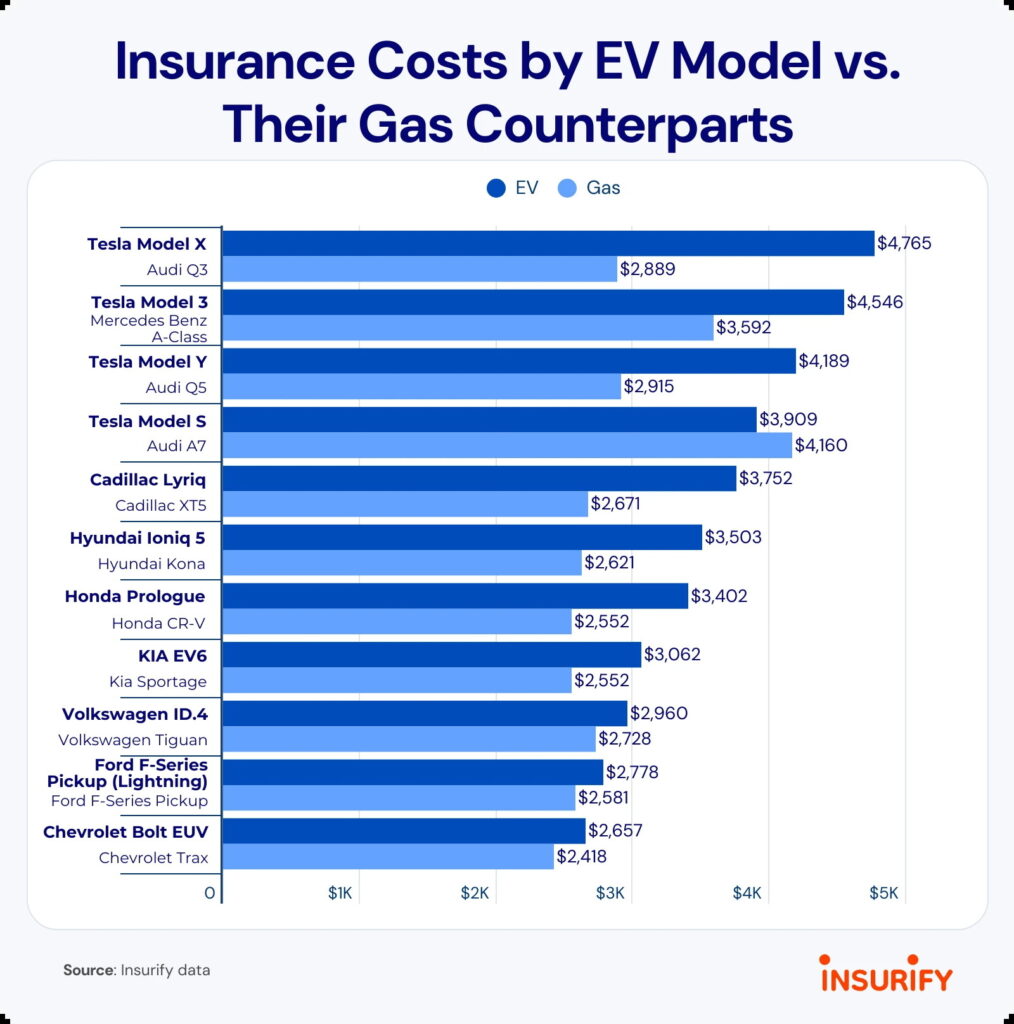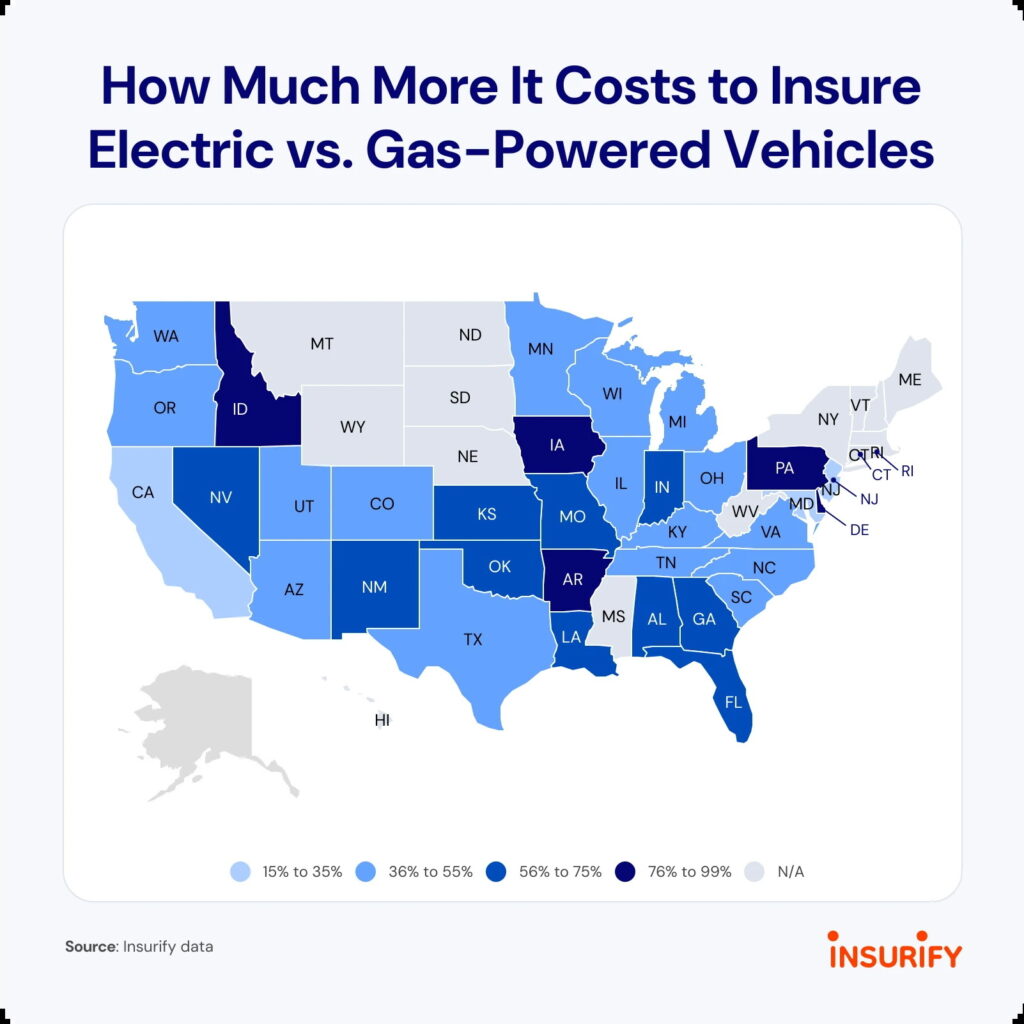Electric Vehicle Insurance Costs
Electric vehicles, regardless of one’s attitude towards them, are usually more expensive than cars with internal combustion engines. A recent study indicates that they are also more expensive to insure, and the difference is significant. However, upon closer examination, the results turn out to be not so clear-cut.
Study Data
Data obtained from Insurify, based on over 97 million insurance quotes, shows average rates for electric and fuel-powered vehicles. The study covered comprehensive insurance for 2020 models and newer, considering drivers with a clean history and good credit rating. Overall, insuring electric vehicles costs 49% more.
Reasons for Higher Rates
The explanation for this phenomenon seems simple: electric vehicles have a higher initial cost and are typically more expensive to repair. Parts are harder to find, and a damaged battery can disable a car faster than a conventional engine breakdown. Moreover, electric vehicles are often new models with limited aftermarket support, which forces insurance companies to include additional risks in their rates.
Questions About Methodology
However, there are questionable aspects to the study. For example, comparing the Tesla Model X to the Audi Q3 or the Mercedes A-Class to the Tesla Model 3 raises questions, as these models are not direct equivalents. As critics have pointed out, such comparisons may distort the results. Ignoring factors such as warranty coverage or actual repairability can also affect the conclusions.
Uniqueness of Each Case
It is important to consider that each repair is unique. While engine replacement is usually cheaper than battery replacement, the final cost depends on the specific vehicle. Furthermore, the federal warranty on electric vehicle batteries (8 years or 100,000 miles) reduces risks for owners, which may not be fully accounted for by insurers.

Most Affordable Electric Vehicles to Insure
Despite the caveats, the study also identified models with the lowest insurance rates, such as the Chevrolet Blazer, Nissan Leaf, Kia Niro EV, Hyundai Ioniq, Ford F-150 Lightning, and Subaru Solterra/Toyota bZ4X.

Summary and Context
The question of how accurate these figures are remains open. Electric vehicle insurance may be higher for now, but due to the questionable methodology, this study rather points to problems in measuring costs than to the real advantages or disadvantages of owning an electric vehicle. As technology develops and parts become more available, the situation may change, which will affect insurance rates in the future.


 by
by 
